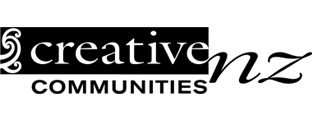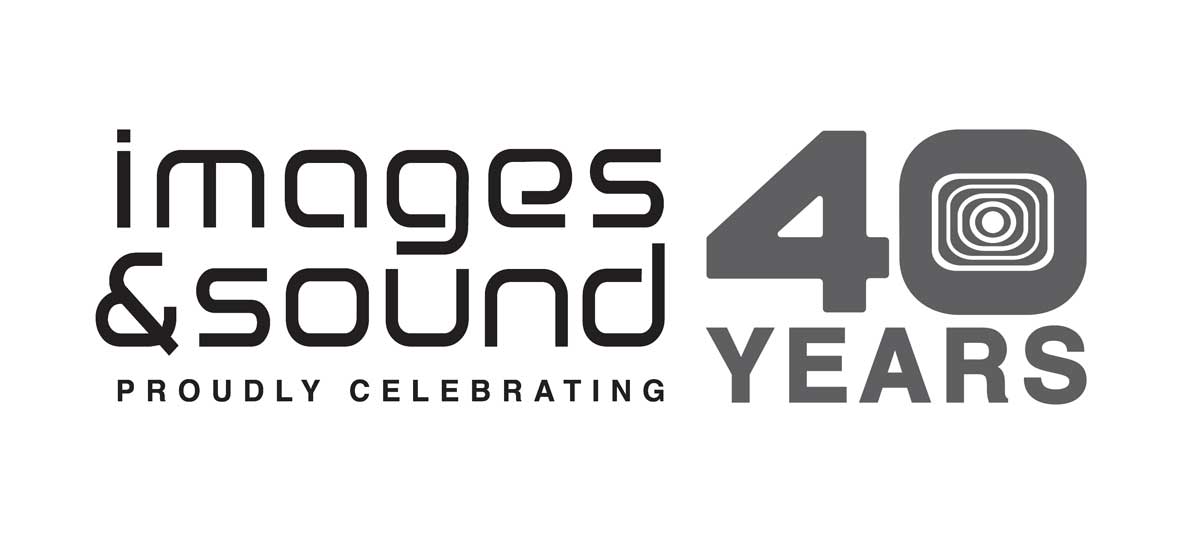Script to Screen, the Screen Directors’ Guild of NZ and Actors’ Equity joined forces to present a very special May Writer’s Room event to explore the relationship between the director and the actor, and how directors can enable performances that brings words to life and create magic onscreen.
Actors Tandi Wright (Nothing Trivial, Out of the Blue), Jarod Rawiri (Harry, Fantail) and Stephen Lovatt (Top of the Lake, Fantail) discussed with MC and director Peter Burger what they have learned about the director/actor relationship and how that relationship has helped engender their best performances.
The evening began with some very fine clips showcasing the considerable acting talents of the panel, followed by a confession from Peter. “When I first started directing, I found working with actors could be intimidating – even talking to them was a challenge. Is there a secret code? What is it you’d like to hear a director say – what do you want from us?”
“Good communication, trust, a love of the craft and the project, an enjoyment of actors and a passion for working with others who want to do a good job too,” said Tandi.
A tall order perhaps? Stephen followed on with the ‘down-home’ advice, “Some manners go a long way too!” For Jarod an important part of his relationship is the director’s willingness to acknowledge the vulnerability of an actor, to be open to this, and have empathy for it.
The rehearsal process provides a ‘getting to know you’ opportunity for both actors and director and can also help to dispel some pre-existing barriers and preconceptions. As a director, Peter said the rehearsal process was not about setting the performance but more about being creative. “It shouldn’t be about getting the perfect performance during rehearsal. I want that for filming. I never ask an actor to put everything into it during rehearsal because they might put too much.”
Jarod wasn’t sure how to manage the rehearsal process when he fronted up for his first dramatic project. “Now my rehearsal time is 80% sitting down and talking about the material and 20% ‘let’s do it!’ For me it’s all about getting to know the director and establishing a language. I like talking with the director about what is happening in each scene, not touching the scene but retaining the idea of what we are trying to do with it, where we are trying to go.”
Tandi felt people can, in general, be intimidated by actors and the rehearsal process provides an opportunity to break down some of those barriers. “That’s when the trust process starts.”
Stephen agreed but said he had experienced rehearsals that ‘devolved into blocking sessions’. “The rehearsal process should be about getting to know each other and defining what we can all bring to the material. If it devolves into blocking, it becomes useless from that perspective.” Some scenes require different approaches in rehearsal, especially those of high emotion or drama, and Stephen prefers to rehearse those differently. “I don’t want to over rehearse the lines because much of the magic is in the words and the emotions those words can trigger. Talking around the ideas behind the words works well for me. Also, you don’t have the same amount of time in film to reach that emotional peak as you have in theatre, so you have to be mindful of that and be able to hit the peak at the right time. ”
After all of the groundwork and hard effort of establishing working relationships, there is a magic moment when the director can say, “That’s gone well!” … or not …. and so much of that outcome depends not only on the actors and director, but the entire crew.
“Feeling the energy of the whole crew in a positive way, everyone going, ‘Yes we can do this’, is so important,” said Jarod. “Nothing is actually said, but I can sense that unity with the crew as opposed to being separate from them.”
Directors are under considerable pressure and stress from multiple sources, especially the constraints of time. Stephen said there is nothing wrong with putting pressure on an actor to ‘get this done now’. “The sun is setting … daylight is leaving … and it’s ‘let’s get this done’. There’s nothing manipulative about it. Everyone on set is concentrating, putting pressure on the actor to make it happen and there’s nothing wrong with that. The actor has signed on to do the job, has seen the call sheet, it’s down to eight minutes and the sun is about to set. As an actor, you’re about to lay it all on the line otherwise we don’t have a show, so when you come to that point, you know you have the best wishes of everyone on set. The weight of that responsibility is a good energy to come from. The actor will do everything in their creative power to deliver the best they can. They knew it was coming, they’ve read the script, they have an honest relationship with the director and the crew so it will happen, but it requires that level of sincerity from all parties.”
When the chips are down, it means alot to Tandi when a director says, ‘Take the time you need.’ “It’s not helpful when the crew is running about like headless chooks so when the director says ‘take what you need’ I really appreciate that. To me, that says, ‘I have confidence in you’. I’m also into a director’s ‘horse whispering’. If I’m in the zone, in character, and the director comes up to me and has a quiet word in my ear, I like that. But I’m such an old trout now that I find it easier to just ask for what I need. If I’m not at the point I need to be, then I’ll ask the director to help me get there.”
Peter said directors should always have a firm respect for the actor, understand that he or she is a professional and can do their job. “The best thing I can do is not hang out in the actor’s face but try to be in tune with them just that little bit more, keep my energy a bit closer to them, be watchful. If I feel like I can be helpful, I’ll try to reinforce in subtle ways, reassure, try to give them a bit of a boost.”
Stephen said developing that creative trust with the director is essential for having such constructive conversations but ‘crossing the line’ into an actor’s creative process is not helpful. “It’s not nice if anyone tries to get involved with your process. That’s nobody’s business. You can ‘over-help’ an actor and that’s not good.”
Avoiding the temptation to become too involved can be a challenge for a director. “Sometimes you’re working with an actor who is a bit inexperienced and is finding it hard to get to a certain place,” said Peter. “That can be tough on set. In rehearsal it’s easier. I tend to bring out stories from my own experience and find that helps to establish the trust by laying out things that are personal to me yet relevant to the story.”
There were many actors in the audience. One commented that having a director who listened to his options, choices and questions was ideal and Peter stressed that the relationship is always one of collaboration. Tandi agreed. “Having that confidence in the director is very important. Being open to your ideas, not feeling threatened by them, that sense of true collaboration and the feeling that you are all working together to make the best thing you can.”
While collaboration is vital to success, a director must be able to clearly define the parameters of their role and that of the actor. Stephen said, “The director has a critical factor operating where they will say to an actor, ‘Thanks for the offer but I understand this story in a larger sense. That is my job whereas yours is to be in character from one moment to the next.’ That not only clarifies but also helps to build confidence and trust because it gives you the sense that the director knows the story they want to tell.”
And a good director will do their homework. “I still find shooting a frightening experience,” said Peter, “and it is the fear that makes me do alot of homework. If an actor has done his or her work well, the only way I can come back with a respectable answer to their question is if I know my end of the job equally well, so I can then say ‘yes, great’ or ‘no and here’s the reason why.’”
When a director has put in the work, Jarod finds that a challenge he enjoys. “If a director knows the material really well, they will challenge us as actors, test us to see if we know the material as well as they do. I like that. Sometimes it makes me think I don’t know the material as well as I need to.”
Tandi expects the same level of commitment from a director that she puts into her own work. “I butt up against a director sometimes, bounce ideas around, it can be a robust process because I am working hard here and I want them to do the same. I want to be able to think, “Yes, I will follow you to the ends of the earth.’”
She could only remember having one ‘stand up row’ with a director where she had felt unsupported on set. “It was a stressful schedule and he only gave me one take on a close up that was part of an important scene. We’re moving so fast … I’m still trying to hit my mark and it’s technical. Afterwards, I said to him that giving me just the one take wasn’t enough to ‘get the gold’ . I said it would be useable but not interesting and I couldn’t tell whether he really had too little time or just didn’t care about my performance and I found that quite gutting. Acting is a very exposing thing and you need to feel that someone has your back out there.”
Jarod recalled a time when he lost confidence in a director and never made it to the set. “A number of the cast walked away. There was an overconfidence with the project. The way the director talked about it gave the impression it was going to be ‘this’ and it just wasn’t real so I thought no, I don’t want to be involved. It’s great to be optimistic and excited about what you’re making, but it has to be real.”
Creating that positive environment of ‘sharing and caring’ is integral to a project’s success and Stephen offered a tip. “I like to assume that everyone there is doing their best to deliver things that are useful to the project, so taking what is offered in the positive spirit intended, even if it’s wildly off the planet, is the way to go. Saying ‘thank you, I appreciate your input here’ is a great way to get the best out of everyone, even if the input is not something you can use. It’s good manners!”
Offering some advice to other directors, Peter said ‘people skills’ and an appreciation of the actor’s craft and the emotional intensity needed from an actor to produce the result asked for are important. “If I say, ‘be more scary’, the actor needs to do that internal work to figure out how to be more scary. So before I give that external direction, ‘be more scary’, I try to put myself into the actor’s shoes, into the shoes of their character. So while I am talking on one level externally, internally I am feeling the character. A classic telltale sign of a newbie director is to say, ‘This is what I want to see coming out of you’ and the actor has to do all the work. Offering an internal motivation can be helpful.”
During question time, the panel was asked if, as actors, they give each other advice?
“Depends on the actors you’re dealing with, “said Stephen. “Some don’t but Tandi and I are old mates so we talk, have that trust in each other and know we are coming from a generous place. I think it’s quite common for Kiwi actors to do this. That’s one thing that makes working in our industry so warm.”
Tandi said that if she feels an actor isn’t serving the scene, she will speak with the director. “That way it becomes a collaborative experience. I would never criticise another actor. Sometimes I think that aspiring directors should have a go at acting because then they would realise how hard it is. Good actors make it look easy but it can be hard to understand how exposing it is and how vulnerable acting can make you feel.”
Do actors ever feel manipulated by the director?
“I don’t mind being manipulated as long as it is done generously,” said Stephen.” I don’t mind being treated harshly as long as it is done honestly.”
“Sometimes I feel a bit manipulative in the blocking scenes,” said Peter. “I block simpler scenes before I go on set. Complex scenes will take more time. As a director you figure out the visual as well as the acting. I might want an actor to stand under an archway because I think it’s a cool shot. If I can present it in such a way that the actor instinctively feels that’s the right place to stand, then that’s good, or I might arrange the chairs in such a way that they go stand under the archway without me having to say anything.”
Stephen said he would stand under the archway as long as the director wasn’t ‘bullshitting’ him. “I will stand under your arch but don’t make me do it at a bullshit point. I’ll do the blocking you want as long as it make sense. There has to be a reason for me to go somewhere in blocking.”
Jarod said he once worked with a director who had a writing background and didn’t understand how to block. “He relied on his DOP to determine the movement which gave us freedom to move however we wanted. It was scary and exciting but I enjoyed it because it gave us the opportunity to feel organic with it.”
“The more I do this job the more I love that it is not like a normal job,” said Tandi. “Actors can be weird and emotional and we should embrace that weird emotional stuff and not be afraid of it. When actors get upset or want a robust discussion about stuff, embrace that emotion because that is why we do that job. It turns into magic onscreen. Embrace it.”
Written for Script to Screen by Jane Bissell










